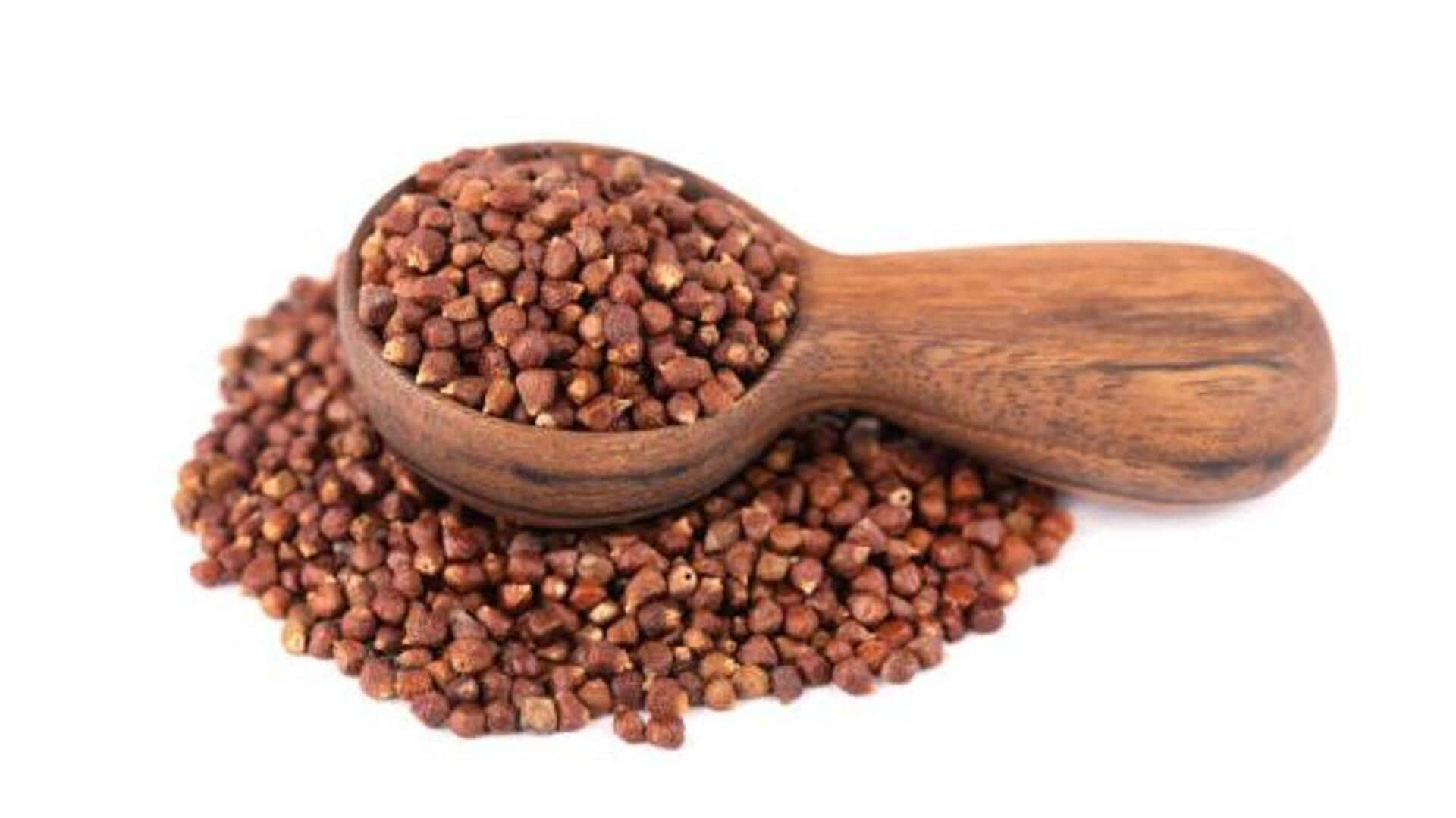
Try these dishes featuring alligator pepper
What's the story
Alligator pepper, a spice native to West Africa, is known for its unique flavor profile, combining heat and aromatic notes. Used in traditional African cuisine, it's known for enhancing the taste of various dishes. Here are five creative ways to use alligator pepper in African dishes, showcasing its versatility and ability to elevate flavors. From soups to desserts, see how this spice can transform your culinary creations.
Dish 1
Spicy jollof rice twist
Jollof rice is a popular West African dish with a rich tomato base and vibrant spices. By adding ground alligator pepper, you can make it extra hot and complex. The pepper's earthy undertones go well with the sweetness of tomatoes and smokiness of bell peppers. Start with a small amount to achieve a balanced flavor, and adjust according to your preference.
Dish 2
Alligator pepper infused plantain chips
Plantain chips are a widely enjoyed snack throughout Africa. However, to add an exciting twist to them, dust ground alligator pepper over freshly fried chips while they're still hot. The spice lends a warm kick that complements the inherent sweetness of plantains. The easy addition elevates ordinary chips into an irresistible treat for any occasion.
Dish 3
Aromatic egusi soup enhancement
Egusi soup has melon seeds and leafy greens, making it a staple hearty meal option in most African households. Adding alligator pepper to this dish takes its aroma and depth of flavor to the next level without overpowering other ingredients like spinach or pumpkin leaves. Just a pinch goes a long way in elevating this traditional favorite without losing its authentic taste.
Dish 4
Sweet potato mash with alligator pepper zest
Sweet potatoes are versatile tubers, widely consumed across Africa, as savory sides or sweet desserts, depending on cultural practices in regions like Nigeria or Ghana, etc. where they thrive abundantly, thanks largely to favorable climates conducive to their cultivation efforts yielding bountiful harvests every year, thus ensuring steady supply chains remain intact year-round despite occasional disruptions due to unforeseen circumstances beyond control, etc.